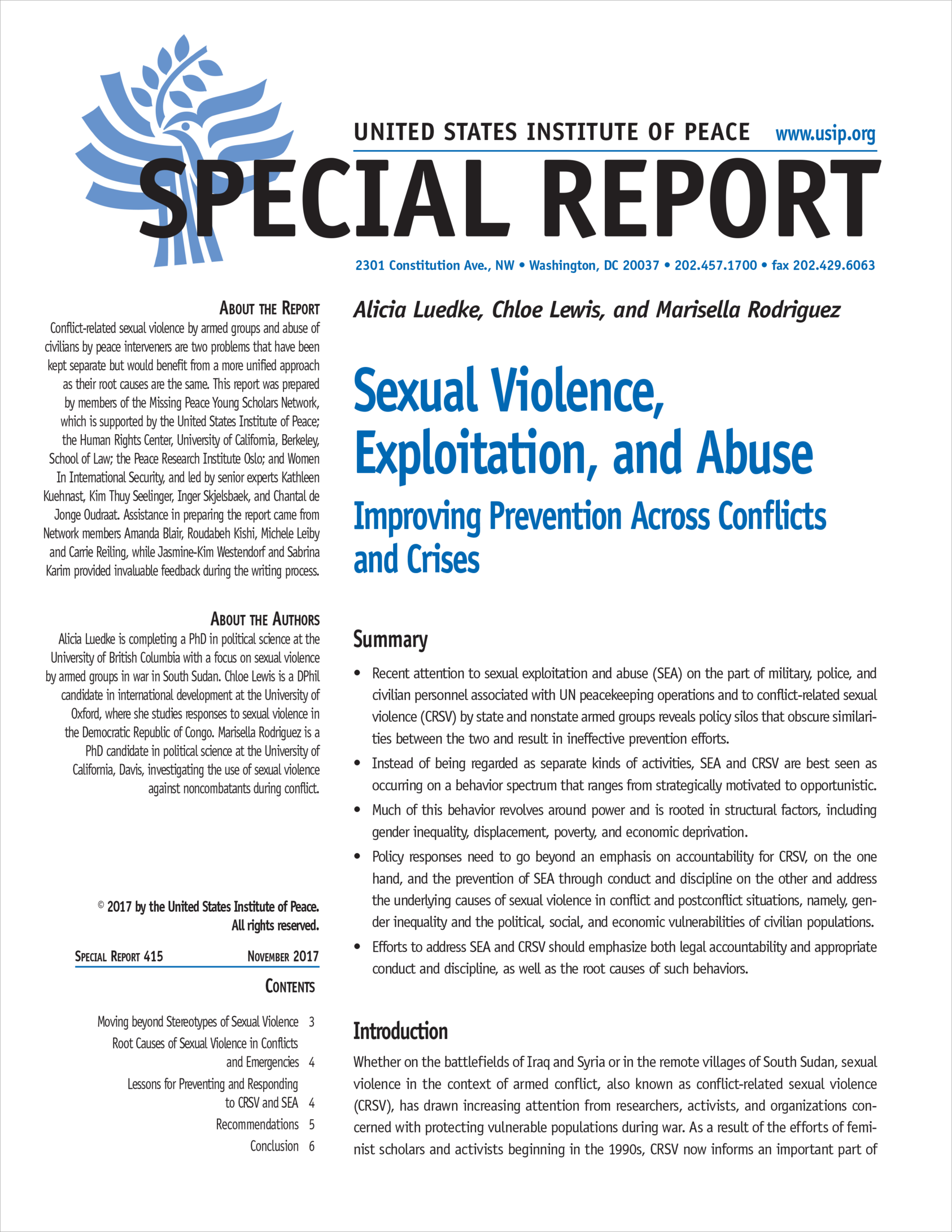Improving Prevention Across Conflicts and Crises
Former UN secretary-general Ban Ki-moon and current UN Secretary-General António Guterres have both recognized sexual exploitation and abuse (SEA) by interveners as a risk to peacekeeping operations, which has led to a series of new policy responses. As institutions begin to adopt new policies for the prevention of SEA by international interveners, it is critical that existing scholarship on conflict-related sexual violence be translated and integrated into SEA prevention efforts so that these two fields find common ground.
Summary
- Recent attention to sexual exploitation and abuse (SEA) on the part of military, police, and civilian personnel associated with UN peacekeeping operations and to conflict-related sexual violence (CRSV) by state and nonstate armed groups reveals policy silos that obscure similarities between the two and result in ineffective prevention efforts.
- Instead of being regarded as separate kinds of activities, SEA and CRSV are best seen as occurring on a behavior spectrum that ranges from strategically motivated to opportunistic.
- Much of this behavior revolves around power and is rooted in structural factors, including gender inequality, displacement, poverty, and economic deprivation.
- Policy responses need to go beyond an emphasis on accountability for CRSV, on the one hand, and the prevention of SEA through conduct and discipline on the other and address the underlying causes of sexual violence in conflict and postconflict situations, namely, gender inequality and the political, social, and economic vulnerabilities of civilian populations.
- Efforts to address SEA and CRSV should emphasize both legal accountability and appropriate conduct and discipline, as well as the root causes of such behaviors.
About the Report
Conflict-related sexual violence by armed groups and abuse of civilians by peace interveners are two problems that have been kept separate but would benefit from a more unified approach as their root causes are the same. This report was prepared by members of the Missing Peace Young Scholars Network, which is supported by the United States Institute of Peace; the Human Rights Center, University of California, Berkeley, School of Law; the Peace Research Institute Oslo; and Women In International Security, and led by senior experts Kathleen Kuehnast, Kim Thuy Seelinger, Inger Skjelsbaek, and Chantal de Jonge Oudraat. Assistance in preparing the report came from Network members Amanda Blair, Roudabeh Kishi, Michele Leiby and Carrie Reiling, while Jasmine-Kim Westendorf and Sabrina Karim provided invaluable feedback during the writing process.
About the Authors
Alicia Luedke is completing a PhD in political science at the University of British Columbia with a focus on sexual violence by armed groups in war in South Sudan. Chloe Lewis is a DPhil candidate in international development at the University of Oxford, where she studies responses to sexual violence in the Democratic Republic of Congo. Marisella Rodriguez is a PhD candidate in political science at the University of California, Davis, investigating the use of sexual violence against noncombatants during conflict.
